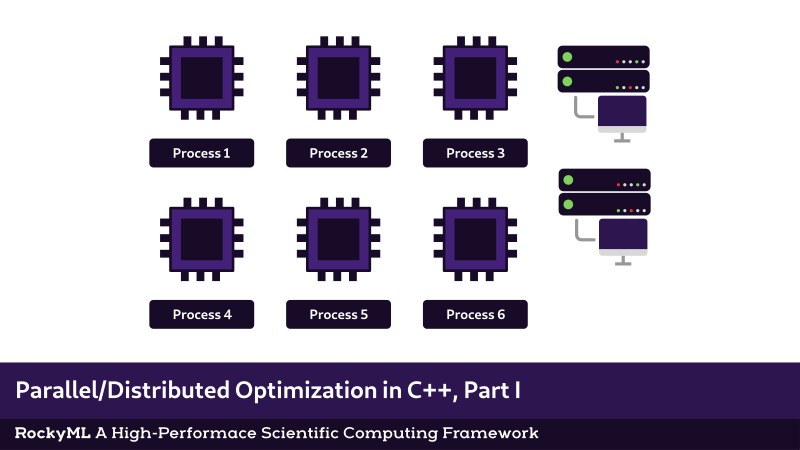 |
RockyML
0.0.1
A High-Performance Scientific Computing Framework
|
 |
RockyML
0.0.1
A High-Performance Scientific Computing Framework
|

This is a basic example of using Zagros and Dena for distributed optimization. Currently Zagros uses MPI as the backend for communication so MPI should be properly initialized in your code:
Now suppose we have the following optimizer in Dena:
This optimizer is a simple mixture of EDA and Genetic crossovers. After defining the problem and runtime you can simply execute it using MPI:
And the execution:
The above command will execute the optimizer with a single process. for execution with 2 processes we can just change the -np parameter:
Also don't forget to assign the proper resources to your processes. for example maybe you like to assign 2 CPU threads to each process:
Read more about process affinity in the documentation of your MPI implementation.
So far if we execute the app, two processes will run simultaniously, however they are independent and don't exchange any information. Dena provides utilities for sharing the information among optimizers so all of them can use the best solution in cluster. Let's create another solution container called best for holding the best solution in a node:
To update the best we can use container::take_best(dest, src) syntax. This command takes the name of two containers as input namely a "destination" container and a "source". if the best solution in the source is better than the worst solution in the destination, the solution in the source will be replaced. To ensure it contains the best solution we can update it at each step:
Now we are sure that best holds the best solution in this process. Next we are going to ask all processes in the cluster, who has the best value for this container? whoever is it, should broadcast it for everyone else. To do so we can simply use propagate::cluster::best() like this:
However note this is a collective call performing a synchronization for all processes, so it's better not to call it frequently:
Now we need to make sure the retreived solution will be available in A so the mutation and EDA algorithms can use it.
Suppose you have many nodes and you want to track the best found solution in all of them. In addition to local logging, Dena supports logging the result on Comet. First you need to create a comet_log_handler object:
Now using log::comet::best(cnt, log_handler), we can log the best solution in container cnt at each step. Do the possible latency for sending the result to Comet server, we can perform this operation with a certain probability:
Now the result are available in your Comet dashbord.
In this tutorial we saw a basic example of designing a distributed optimizer, basic syntax for solution propagation, and tracking the experiment using Comet.
The complete source code for this example is available here.